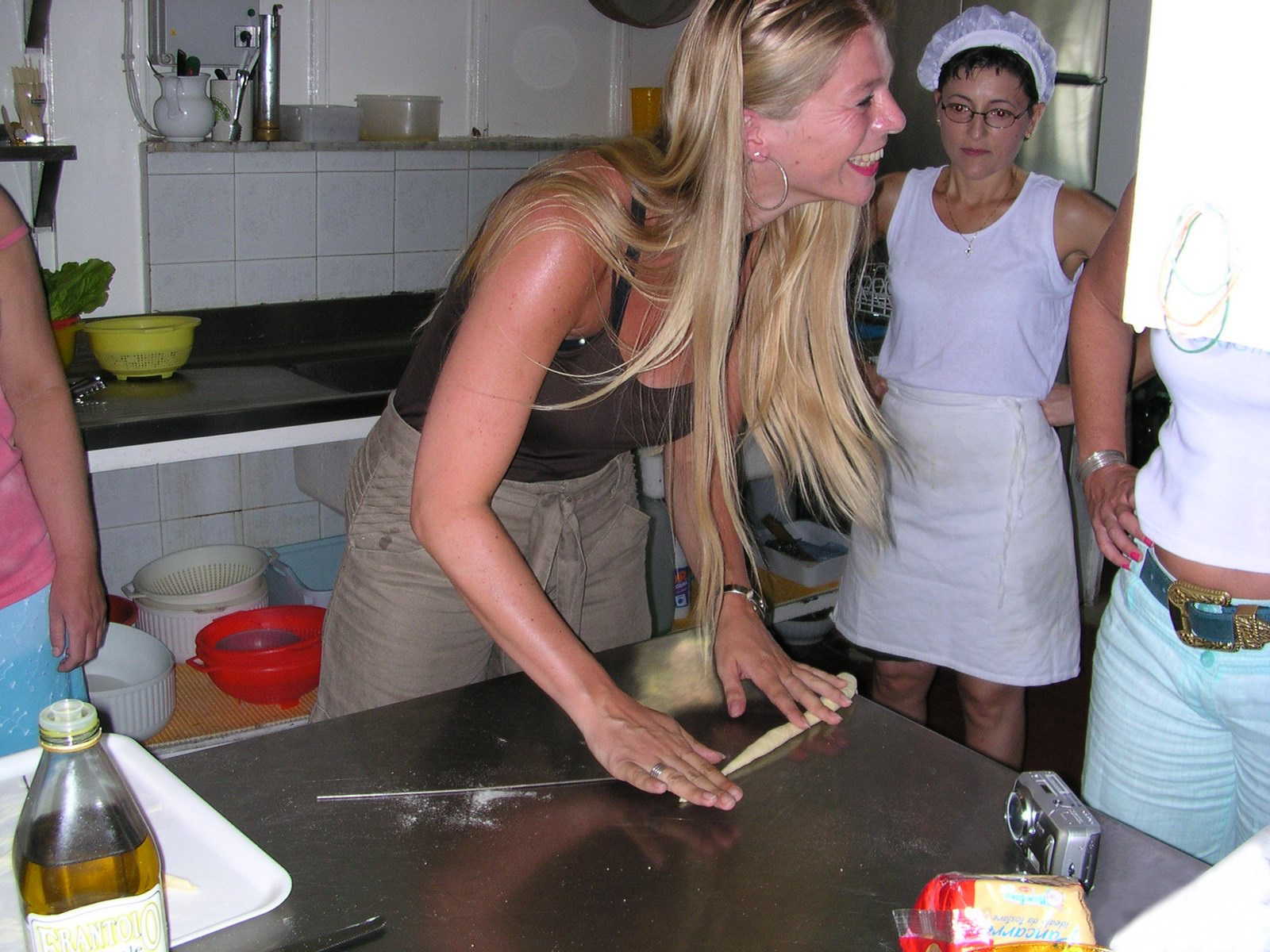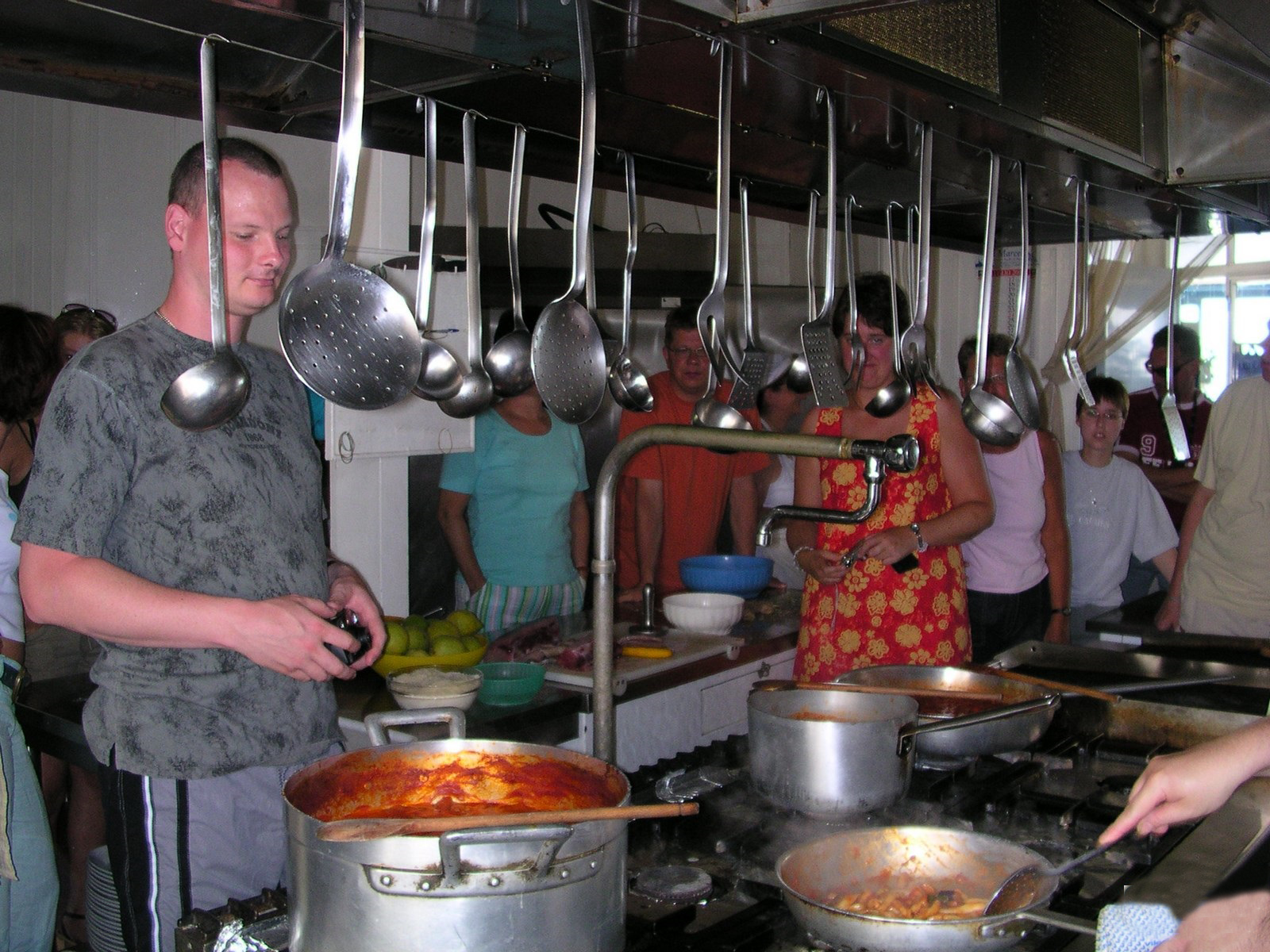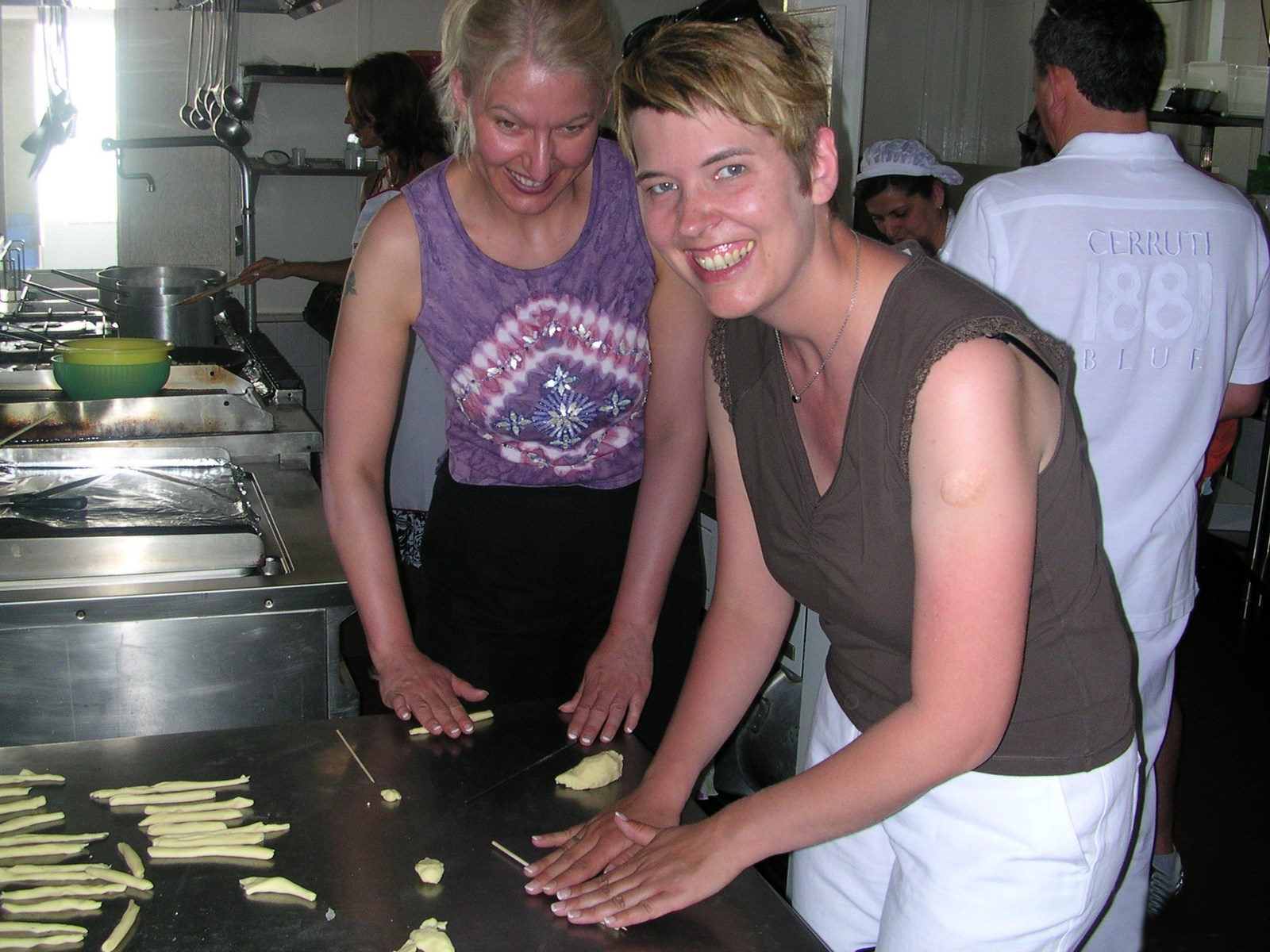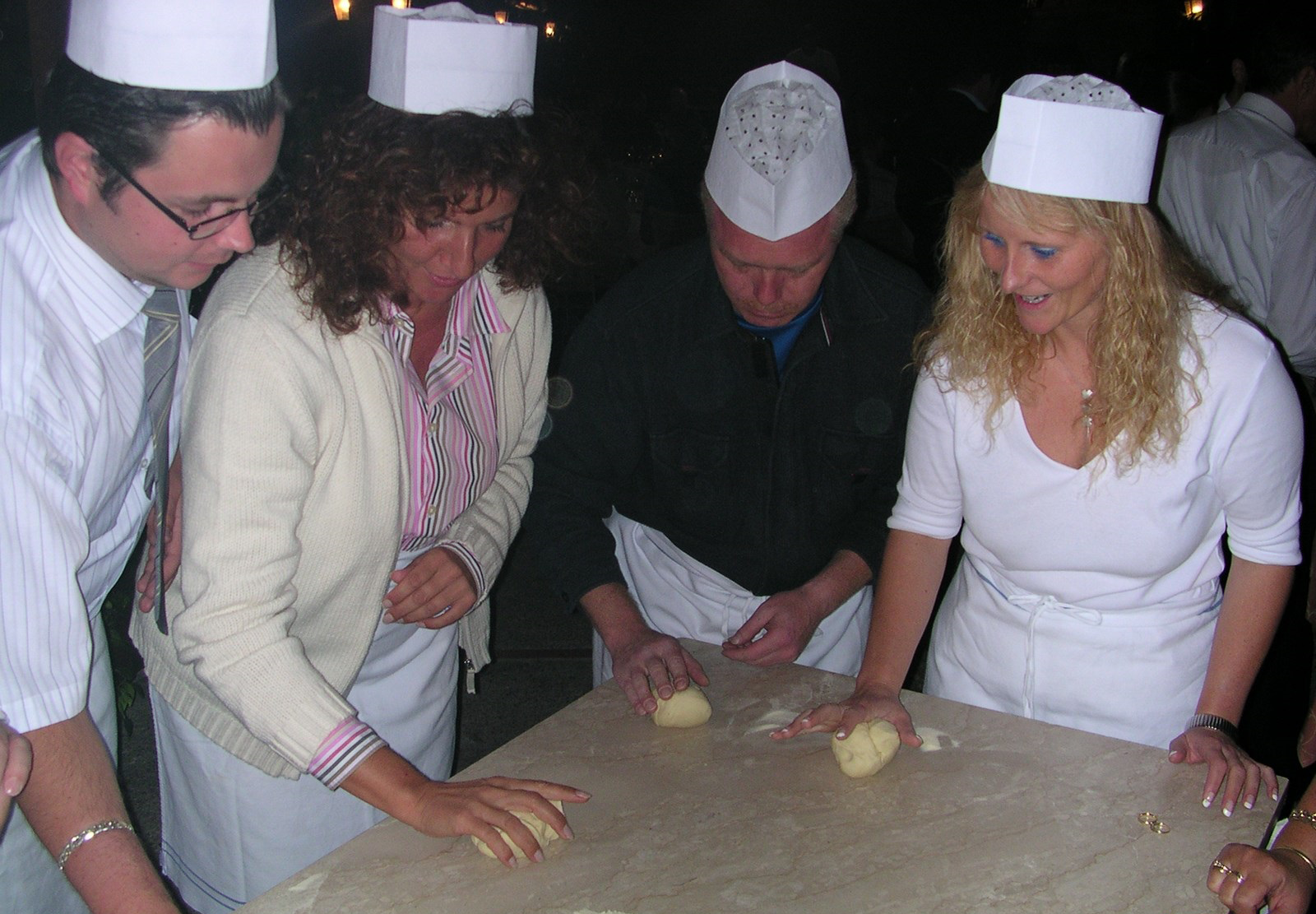In Sicily, cooking is an art, a philosophy, a life style.
Involving all senses, and mixing seductive perfumes, vivid colours and intense flavours, meals are prepared carefully and slowly, until this symphony of ingredients reaches its maximum harmony.
Consequently, people venerate those masterpieces with the necessary emphasis and dedication: in Sicily, lunch or dinner can last even 2 or 3 hours!
In Sicily, cooking means also combining different traditions, dating back from all the conquering cultures which passed through the island and left their imprint not only on its history, architecture, and culture, but also on Sicily’s cuisine!
The Phoenicians introduced the use of salt to preserve and cure fish and food, followed by the Greeks who explored the forests and the fertile soil Sicily offered, introducing olive trees and incrementing the production of wine and the cultivation of artichokes.
Cooking with honey was important to the Greeks, and the fava bean was a favourite among the Greeks and later the Romans.
The island became known as the granary of Rome, and the Roman proverb « Siculus coquus et Sicula mensa » (« Sicilian cook and Sicilian Table ») reflected the high evaluation of Sicilian cuisine.
Nevertheless, it was the Arab influence on Sicilian cooking that became the most important, and that has endured to this day.
The Arabs brought the omnipresent eggplant, oranges and lemons.
The tastes of sour, sweet and salty were paired or combined to create new dimensions in the savour of food, and raisins, pine nuts, almonds and pistachios were extensively used. Arab cous-cous is still eaten nowadays in the western part of Sicily.
The Arabs also brought a new sweetener, the sugar cane, that would lead to the development of Sicilian baked goods, pastry and cookies of every type, cakes and sherbets: the classic cassata comes from the Arabic qas’ah; Marzipan and torrone are sweets of Arab origin.
Perhaps the most famous gift from the Arabs was sarbat (sorbetto to the Italians, sherbet to the English): fruit syrup diluted with water.
Mt. Etna provided ice, a boon in so hot a country and the sarbat became granita, a version made by partially freezing the flavoured water, then mixing the liquid and frozen part to a slush.
Encouraged by the nomadic Arabs, as well as by the demands of the natural terrain, Sicilians raised primarily sheep and goats, which provide the milk for Caciocavallo, Provola and Pecorino cheeses.
The whey left over is used to make Ricotta, and Sicilians swear that only sheep’s milk Ricotta gives the right flavour to their desserts.
The Normans added little to cooking methods, and their major food imprint was salt cod, called stoccafisso by the Sicilians.
Not a profound legacy.
However, Sicily, as an island, had had always seas filled with an abundance of fish: sardines, tuna, swordfish, and many others.
Under the French reign d’Anjou, olive oil, garlic, olives and anchovies, staple ingredients in the Provencal style of cooking, have been introduced and are also fundamental in the older and much more complex Sicilian cooking schools.
Learn more about traditional Mamma’s cooking and join us in our cooking lessons introducing you to one of Sicily’s most developed and refined arts!
OUR DESTINATIONS
NORTH ITALY | CENTRAL ITALY | SOUTH ITALY | ISLANDS





